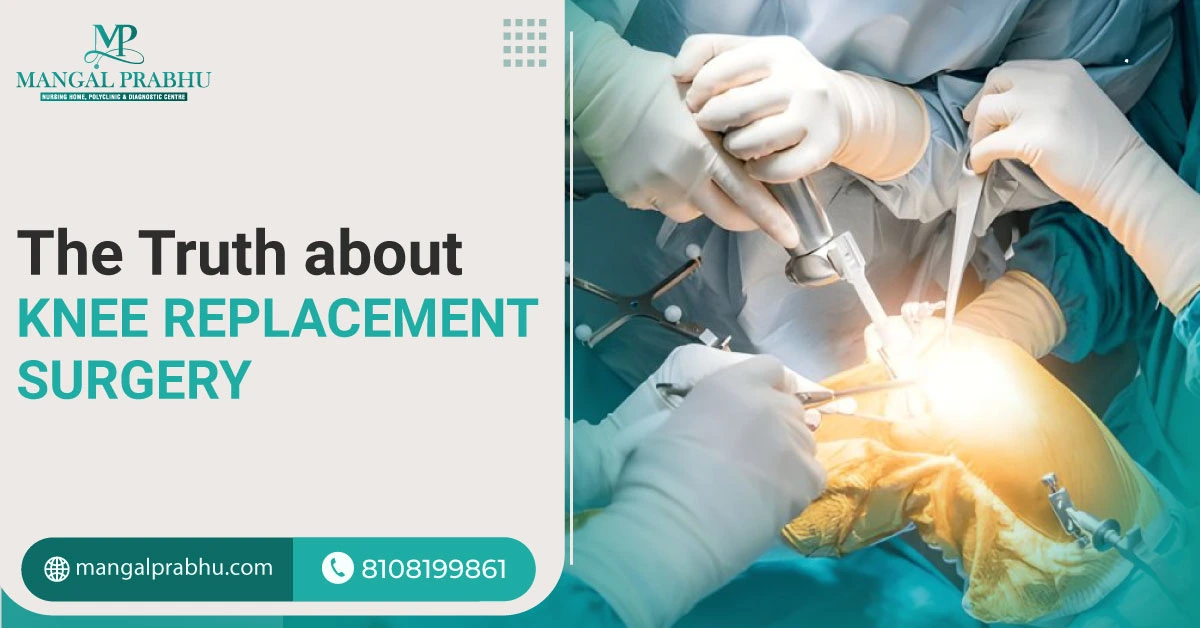
With age, your joints face wear. Excessive wear and tear on knee joints significantly reduces their function and mobility. We live in a world where adults approach orthopedic surgeons in Navi Mumbai and consider knee replacement to get relief from debilitating pain.
However, like any invasive medical procedure, knee replacement surgery comes with its share of risks. If you’re unable to walk or experience severe knee pain, you might be a good candidate for knee replacement. In this post, we’ve mentioned some basic things you should know about the surgery.
Common Reasons for Knee Replacement
1) Osteoarthritis:
The most common reason for considering knee replacement is osteoarthritis. It occurs when cartilage breaks down, causing excessive pain and limiting mobility.
2) Rheumatoid Arthritis:
It’s an autoimmune disorder in which your immune system attacks your cartilage, bone, and surrounding structure, often requiring a total knee replacement. When the inflammation and joint damage go beyond repair and won’t respond to medication, a surgical intervention might be your only option.
3) Severe Knee Injuries:
A traumatic event that fractures your knee joint or causes severe cartilage damage might also require knee replacement surgery in Navi Mumbai.
The Surgery Process
Before the surgery, you’ll be advised to stop certain medications or supplements (if you are on those). Avoid eating anything on the day of surgery.
The surgery takes 1-2 hours, and you’ll be sedated throughout the procedure. The surgeon could also administer local anesthesia, which only numbs the area where surgery is to be performed. Here’s the detailed steps of the procedure:
- The doctor makes a cut on your knee
- Removes the damaged cartilage
- Place the artificial implants
- They will close the incision with stitches.
Post-surgical recovery involves a short hospital stay, usually 2-3 days, but some patients are discharged the same day. During this time, your vitals are monitored. Your surgeon will soon recommend physical therapy to help strengthen your muscles and restore mobility. You need to start walking with walking aids to mitigate the risk of blood clots.
Follow your doctor’s advice for faster recovery. Painkillers will help manage pain and discomfort. Rest as much as possible, keep your leg elevated, and use cold compresses to relieve swelling and pain.
Benefits and Risks
Knee replacement can be beneficial if you’ve lost mobility or significant knee function. Here’s how it may help:
- Restore your mobility
- Provide relief from excruciating pain
- Improve your quality of life
- Allow you to carry out your routine tasks and physical activities like before
Risks
- There’s a risk of infection and blood clots
- Long recovery
Alternatives to Knee Replacement
Surgery is not your only option. Your doctor will initially explore other non-invasive procedures, such as medication, physical therapy, and a cane. Physical therapy will improve your muscle strength and your knee function. Medication can help with inflammation and pain. If none of these work, partial knee replacement is still an option if you want a quick recovery. Talk to your surgeon to learn more about total knee replacement, its cost, and recovery.
